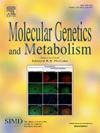Treatment preferences of adult patients with hereditary fructose intolerance: A discrete choice experiment
IF 3.5
2区 生物学
Q2 ENDOCRINOLOGY & METABOLISM
引用次数: 0
Abstract
Background
Patients with hereditary fructose intolerance (HFI) follow a fructose-restricted diet to avoid life-threatening complications. The aim of this study was to investigate whether patients with HFI have a preference for a pharmacological therapy as an add-on or replacement of their current diet.
Methods
Adult patients with HFI recruited from metabolic clinics and through social media (n = 90) were asked to complete a labelled discrete choice experiment (DCE). The DCE was composed after personal interviews with patients (n = 3) and health care providers (n = 6), and contained 12 choice sets. In each choice set, patients were asked to choose between their current fructose-restricted diet or pharmacological therapy, which consisted of four attributes: side effects, costs, mode of administration and effect on fructose restriction.
Results
Although the random parameter model showed that patients on average preferred their current diet over a putative pharmacological therapy, 86 % of the patients opted for pharmacological therapy in at least one of the choice tasks. One tablet daily on special occasions without any fructose restriction, no side effects and no additional costs were significantly associated with a preference for pharmacological therapy. Younger age, more daily impact of the disease and more daily impact of the dietary restriction were associated with a preference for pharmacological therapy.
Conclusions
Under specific conditions, patients with HFI prefer a pharmacological therapy over their fructose-restricted diet. Therapy-related factors as well as patient-related factors play a role in this choice. These findings may guide the development and implementation of a pharmacologic therapy for patients with HFI.
成人遗传性果糖不耐受患者的治疗偏好:一项离散选择实验
背景:遗传性果糖不耐受(HFI)患者遵循果糖限制饮食以避免危及生命的并发症。本研究的目的是调查HFI患者是否偏好将药物治疗作为其当前饮食的补充或替代。方法从代谢诊所和社交媒体招募成年HFI患者(n = 90),要求他们完成标记离散选择实验(DCE)。DCE是在对患者(n = 3)和卫生保健提供者(n = 6)进行个人访谈后组成的,包含12个选择集。在每个选择组中,患者被要求在当前的果糖限制饮食或药物治疗之间进行选择,药物治疗包括四个属性:副作用、成本、给药方式和对果糖限制的影响。结果尽管随机参数模型显示患者平均更喜欢他们目前的饮食而不是假定的药物治疗,但86%的患者在至少一项选择任务中选择了药物治疗。在特殊情况下每天一片,没有任何果糖限制,没有副作用,也没有额外的费用与药物治疗的偏好显著相关。年龄越小,疾病的日常影响越大,饮食限制的日常影响越大,这些都与药物治疗的偏好有关。结论在特定情况下,HFI患者更倾向于药物治疗而不是限制果糖饮食。治疗相关因素以及患者相关因素在这一选择中发挥作用。这些发现可以指导HFI患者药物治疗的发展和实施。
本文章由计算机程序翻译,如有差异,请以英文原文为准。
求助全文
约1分钟内获得全文
求助全文
来源期刊

Molecular genetics and metabolism
生物-生化与分子生物学
CiteScore
5.90
自引率
7.90%
发文量
621
审稿时长
34 days
期刊介绍:
Molecular Genetics and Metabolism contributes to the understanding of the metabolic and molecular basis of disease. This peer reviewed journal publishes articles describing investigations that use the tools of biochemical genetics and molecular genetics for studies of normal and disease states in humans and animal models.
 求助内容:
求助内容: 应助结果提醒方式:
应助结果提醒方式:


